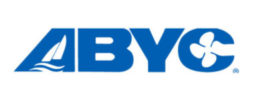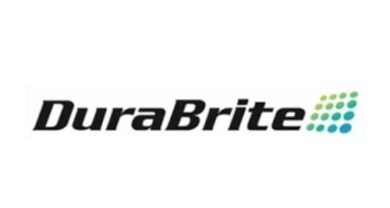Do Your Homework
Trying to compare dealer management systems is like drawing parallels between a johnboat and a yacht. Each works perfectly well in its ideal environment but would be totally inappropriate in another setting, making comparison meaningless.
The needs of each dealer vary widely, according to the size of the dealership and number of locations, comfort level of owners and employees with computers, degree of required integration with parts suppliers, the possibility of marina or boat hotel operations and future plans for growth and expansion. Dealer management software solutions can cost as little as $5,000 for a basic package with minimal support to more than $100,000 for a customized, supported solution designed to optimize marine business operations.
And additional cost does not translate into a higher quality product, greater visibility into financial information or a higher level of support. The variables involved in picking a system that works for your dealership are just that – variable. So before buying your next (or first) dealer management system, be prepared to do the homework required to find a program that fits your needs.
“Typically, the smallest part of this decision is the upfront financial cost of the system,” says Tony Pimentel, chief operating officer at Watch Captain, Mattapoisett, Mass. “Dealers need to have a clear and specific understanding of the problem or process that the desired software is going to address. Sounds simple, right? It’s surprising how many organizations skip this step.”
Dean Hardy, dealer development manager at Integrated Dealer Systems, agrees that purchase decisions should be made based on quantifiable goals. Are you looking to increase customer loyalty or grow gross profit margins by a certain percentage? Hardy advises writing down the goals you hope to achieve with a new dealer management system and examining them quarterly to make sure you stay on the path toward achieving them.
So dealers should first determine not only what their current needs are but also what their likely future requirements will be and then purchase software that will grow with the dealership. “Don’t just look at price but at the program’s ability to handle your needs five years or 10 years down the road,” advises Scott Cutting, sales director at ADP Lightspeed, based in Saratoga Springs, N.Y. “Basically, you’re trusting your business to this company, so will the vendor be around in five years?”
Dealers should look to vendors with experience, preferably in the marine industry. While point-of-sale, finance and insurance, inventory tracking and service modules certainly mimic those in other industries, many of the requirements, including compatibility with OEM and aftermarket parts ordering systems and the requirements of dealers with marinas or docking capabilities, are unique to this industry. A dealer just looking for a point-of-sale system probably would be happy with software from any company, but most companies likely would benefit more from a system that handles the particular requirements of the marine industry.
Even if you’re interested in only the most basic system, you should examine the entirety of a vendor’s offerings to explore all of the possibilities open to you. Many systems feature customer relationship management systems, time-and-attendance functionality, the ability to build and maintain your own Web site and many other functions you may not have thought of.
Cam Collins, president and CEO at DockMaster Software, North Palm Beach, Fla., says that a “typical” system sold by his company will include dealer functions such as boat sales, CRM and F&I; service, repair and boatyard functions including work order processing, scheduling, inventory, purchasing, point of sale, order entry and electronic parts catalog; marina functions such as storage and billing, transient reservations and launch and haul scheduling; and DockMaster financials including accounts payable, general ledger and financial statements. Common upgrades include bar coding systems for the parts department and time card entry, Wi-Fi hand-held and notebook PCs to support mobile computing and interfaces to credit card processing systems, MICROS restaurant software, dealer Web sites, and manufacturer online ordering and warranty claims systems.
“The fact that we are modular allows users to pick and choose the functions within DockMaster that are relevant to their business,” says Collins. “Smaller dealers that sell 40-50 boats per year may just want something to handle their parts and service operations and utilize off-the-shelf accounting systems, while larger dealers doing several million dollars in sales will want a fully integrated system covering all facets of their business.”
Most software vendors offer their own modular systems based on the common needs of their customers, allowing dealers to tailor system functionality to fit the company’s goals and objectives.
Another important consideration should be the computer literacy level of those who will be using the system. “Too many software companies are getting so high tech that they’re forgetting the baby boomer generation,” says David Bledsoe, director of sales and marketing at Paulson Computer Systems Inc., Lakewood, Wash. “Many mom and pops are still paper-and-pencil businesses with no computers except for engine diagnostic tools and OEM registrations.”
Nannette Smith, vice president of operations at Smith Software Development in Birmingham, Ala., stresses that an ideal system should be easy to use even for those unfamiliar with technology. A system “should be simple on the front end, as it allows for each person in the boat dealership or marina to simply do (his) job, and on the back end it stores and processes the information in a manner that provides a totally integrated environment,” Smith says.
While computers are commonplace at most marine dealers, the level of sophistication concerning technology varies widely, and the purchase of a marine management system can be a huge and scary step. Software costs are just part of what dealers will pay for a system. All costs associated with the software purchase, necessary hardware, software and hardware installation, training, system upgrades and maintenance should be factored into the total price. Only then can cost comparisons and potential return on investment decisions be made.
Since most dealer management software is designed to run in a Windows-based computer environment, servers, network connections and workstations generally are provided through negotiated contracts with preferred manufacturers. Vendor arrangements regarding software installation, employee training and initial support, however, vary widely, as do the necessity of service or maintenance agreements. Software licenses and maintenance plans can be sold per user, per simultaneous user, per workstation, by a percentage of the cost or by some other measure. The key is to include these peripheral and recurring charges as part of total system costs.
Charles Smith, sales manager at Richmond, Va.-based Scribble Software, advises dealers to pay close attention to the accounting module of any system. “It’s important to find out if the accounting system is current with general accounting practices and CPA standards or is a cumbersome home-grown system,” Smith says. Payroll systems should be current (and stay current) with local tax codes, and accounting systems should be updated as local, state and federal regulations change.
Any company will sell you software. The hard part is finding the best fit for your needs, your brands and your employees. Consulting other owners at dealer meetings, 20 Group meetings and trade shows will help get at real-life experiences around installation, support and day-to-day operations, says Bill Rollins, vice president and co-owner at Total Control Software Corp., North Little Rock, Ark. “Find several dealerships of like size and sophistication and ask them which system they use and how successful they have been utilizing it,” Rollins says.
After all, the relationship is just starting when the software is installed.
“It takes a partnership with a vendor to make the most of a dealer management system,” says Hardy from IDS, based in Raleigh, N.C. “The ‘how much is it?’ mentality really is a recipe for disaster.”




